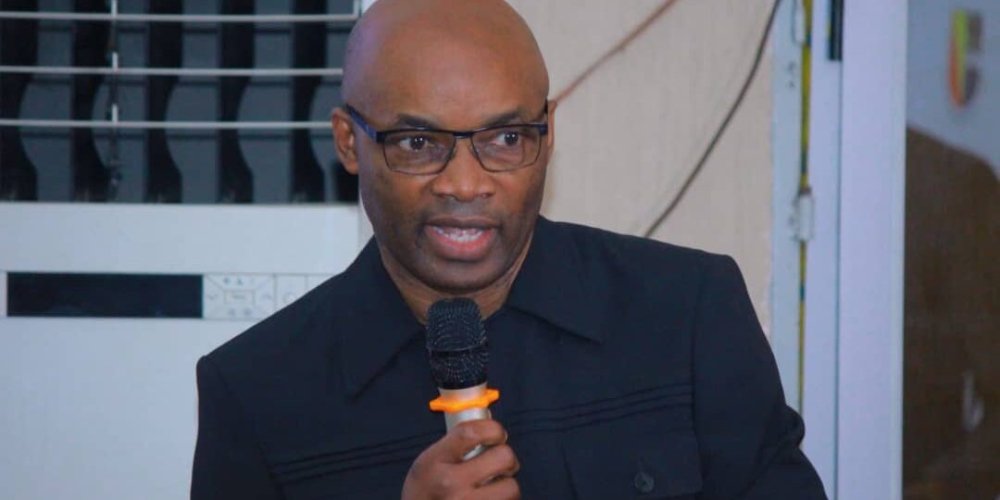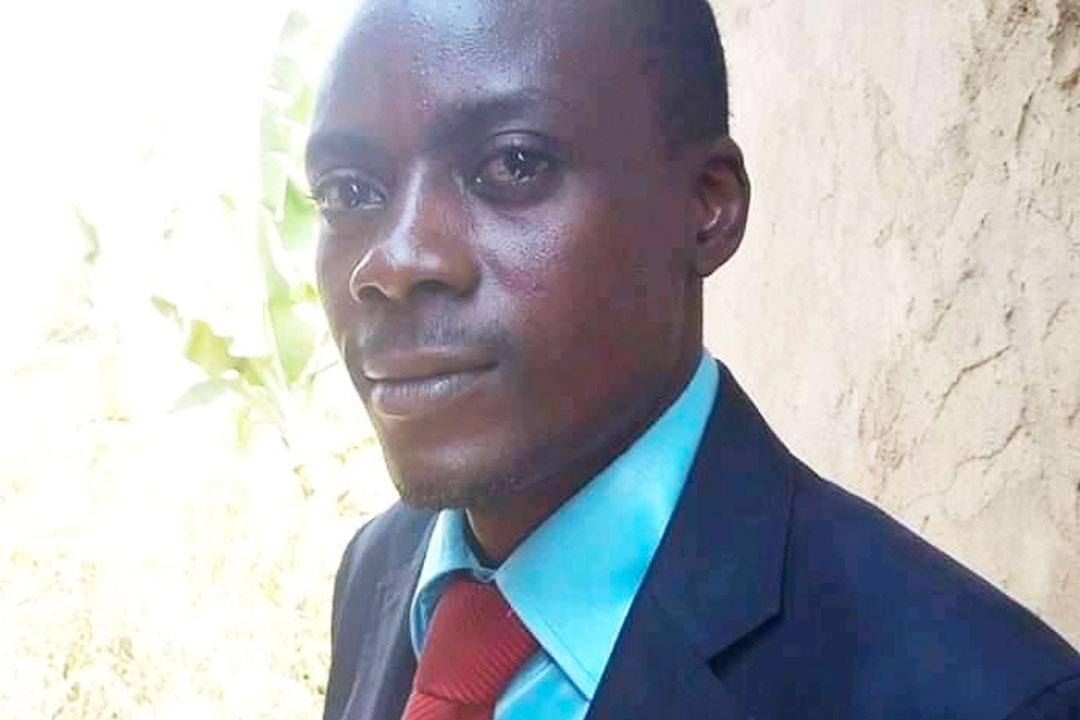More than fifty days after the disappearance of Rwandan poet Innocent Bahati Moussa, there are grave concerns about his whereabout and his fate. There has not been any sign of life from him since the 7th of February 2021, and his family, friends and the general public continue to wonder what happened that day in Nyanza, in southern Rwanda.
According to one of his closest friend, in the afternoon of that day, Bahati who was in Nyanza preparing his new poem received a call from an unidentified individual asking to meet him at a hotel in the area. He has been unreachable since then, and all his mobile phones are disconnected. All efforts by the family and friends to try to find out about his whereabouts have been in vain so far. The Rwanda Investigation Bureau (RIB), which took on this case, has not given any information about the fate of this much promising talent of Rwandan poetry.
Innocent Bahati Moussa, 31, was born in Nyagatare, in northeastern Rwanda, where his family still lives. In 2018, he graduated from the University of Rwanda’s Kigali Institute of Education in Biology, Chemistry and Physics (BCP). After his studies, he was hired as a teaching assistant at the Green Hills Academy, an elite private school in Kigali.
Bahati began publishing his poems in 2013. His endearing personality and humanistic poetry have made him one of the most popular among contemporary poets in Rwanda. The public discovered him in 2016 when he won the Kigali vibrates with poetry contest with his poem “Rubebe”, which tells the lamentations of a young orphan speaking to God. This piece became so popular that Bahati came to be known as Rubebe.
Humanist and socially conscious poet
Bahati’s poems are marked by humanist values. In his interviews, he often talks about the erosion of ethical values in society, which favors material development to the detriment of human development. This is an important issue in Rwanda given its recent history, characterized by open wounds that still haven’t healed. Indeed, each family or each Rwandan carries the trauma of this past with which the Rwandan society is yet to come to terms. In one of his last interviews, he launched this plea for more humanity:
“Tuzagira ibintu, tubure abantu turimbuke”, literally, “We might perish if we lose our humanity in the pursuit of material wealth”
In his poem Muvunyi (2020), he addresses Muvunyi, his unborn son to whom he would like to transmit the values of humanism, righteousness and bravery, while criticizing the excesses of contemporary Rwandan society where cowardice and servility seem to be regarded as the new social values.
In “Mfungurira”, literally “Please feed me”, his last piece of work published on the 10th of January, a few days before his disappearance, Bahati talks about the difficult situation of hunger facing the unemployed youth who cannot find work, even as a construction worker, despite their diplomas and the fact that Rwanda is said to have experienced some of the highest economic growth rates in the world in recent years. This economic growth, even though it is becoming more and more obvious that it is artificially inflated by doctored statistics, is also very badly distributed, Rwanda being one of the most unequal countries in the world.
The COVID-19 pandemic and the lockdown measures that have forced the population to stay at home for months, while most Rwandans survive off their daily income in the informal sector, have worsened the situation of those left behind of the Rwandan society.
In the end, those measures, unsuitable for the local context, caused more suffering than they saved lives. In Rwanda, and this is mainly the case in urban areas, most workers earn their living by actually going to work on a daily basis. The country does not have any social safety net.
The first stanza of this poem sums up the despair in which this youth is plunged:
| Sinsaba inka, njye si ndi uwo gutunga; | I am not asking for cows, i am not looking to be rich; |
| Sinsaba inzu, njye si ndi uwo gutura; | I am not asking for a house, I am a nomad; |
| Nawe mubyeyi ndamira ndenze rino ndamuke; | Ô you my benefactor, just help me to survive this day; |
| Wenda ubukeye rugira azangenera igeno rindi. | God might have a better plan for me tomorrow. |
His family, friends and the public at large are still very concerned. It is been more than fifty days since his disappearance, but there is still a slim hope to find Innocent Bahati safe and sound. We are still awaiting the results of the investigation from the authorities who have so far provided no information about his whereabouts. But as one of his closest friends said: “A man of 2 meters tall with over 100 kg does not disappear like that, it is not as if he can hide or go unnoticed, …, but we remain optimistic to find him and continue to advance Rwandan poetry together. ”
The 21th of March is the World Poetry Day. Rwandan poets also celebrated this day. But shockingly, in all the speeches, no mention was made of their missing colleague. But Edouard Bamporiki, Secretary of State in charge of culture, himself a poet, took advantage of his speech to warn his colleagues:
« One who has nothing to lose may cross the lines, and the one who has no guard will get off the right track. When poetry loses its way, it can mislead the public. It is for this reason that I ask you to forget the difficulties that Rwandan poetry community has known in recent times, but rather to do our part to advise and reprimand those amongst who stray from the right path. »[1]
A colorful explanation of Innocent Bahati’s fate or a simple warning against poets exercising their liberty? Only the future will tell. But the precedents of Edouard Bamporiki with regards to other conscious artists do not reassure us in any way.
Luc Rugamba
Jambonews.net
- « Utagira icyo arengera ararengera [kurêengeera], kandi utagira ikimubuza gutana aratana. Ubusizi iyo bwayobye burayobya. Ni yo mpamvu mpamagarira abasizi bose bitabiriye iyi nama kwirengagiza ingorane zose ubusizi mu Rwanda bumazemo iminsi, ahubwo tugatanga umusanzu mu guhanura no guhwitura abacu bari kwica umurongo.”




